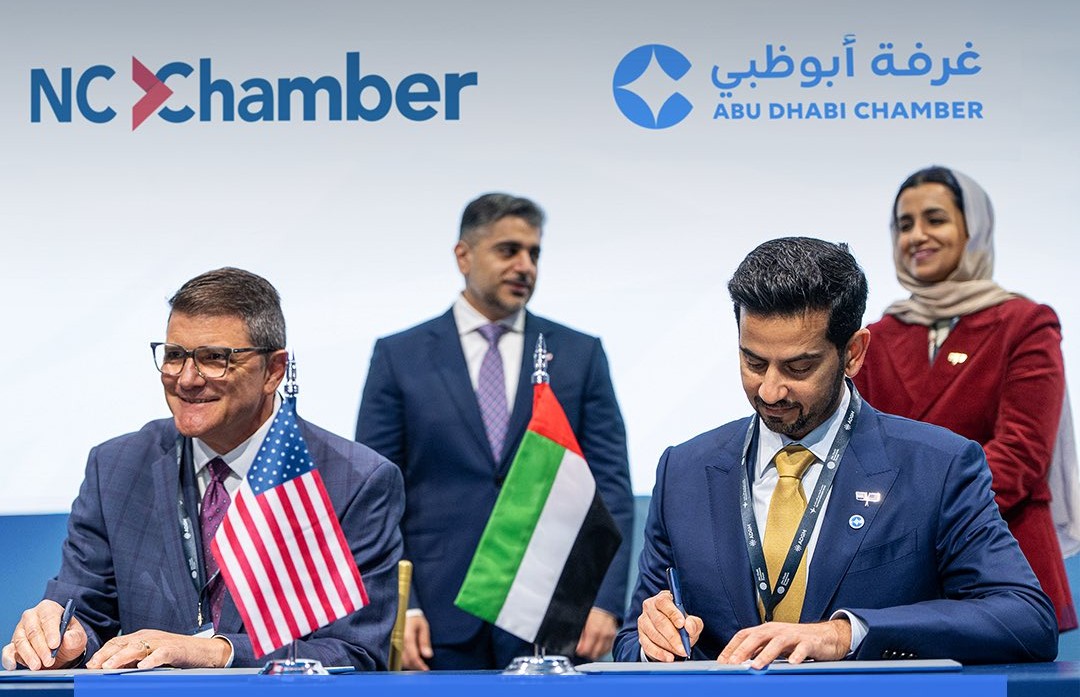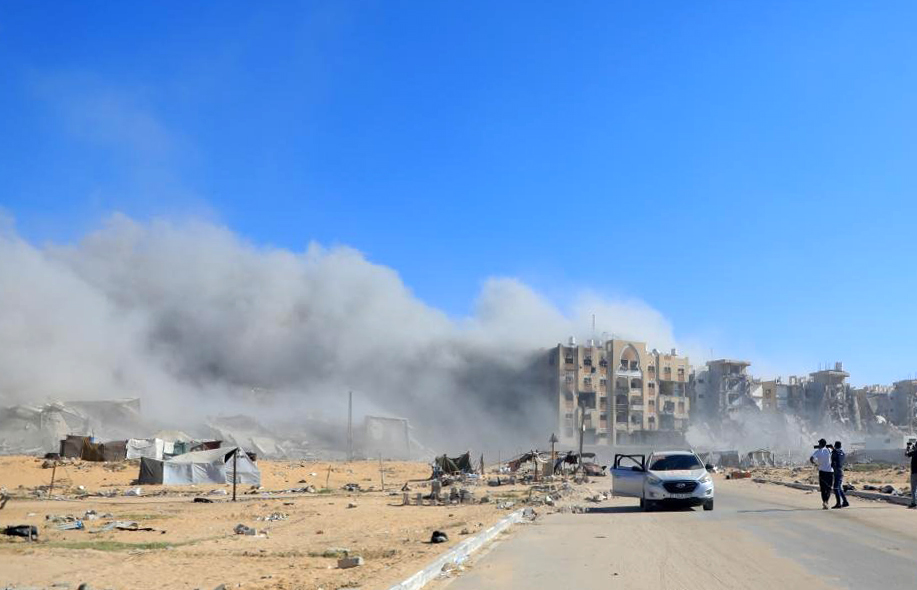GCC chief emphasised that the region’s positive economic outlook is supported by continued reforms, expansion of natural gas production, reduced dependence on oil, and stable inflation rates.
The economies of the Gulf Cooperation Council (GCC) states have demonstrated exceptional resilience in absorbing global shocks, with Abu Dhabi’s non-oil sectors leading a robust diversification and growth trajectory. GCC Secretary-General Jasem Mohammed Al-Budaiwi highlighted that sustained reforms, strong domestic demand, and expanding non-oil activity have underpinned economic growth across the region, despite international challenges.
Al-Budaiwi made the remarks during a joint meeting of GCC finance ministers and central bank governors with International Monetary Fund Managing Director Kristalina Georgieva in Kuwait. He emphasised that the region’s positive economic outlook is supported by continued reforms, expansion of natural gas production, reduced dependence on oil, and stable inflation rates.
Abu Dhabi has emerged as a regional model of resilience, recording a real Gross Domestic Product (GDP) of AED306.3 billion in the second quarter of 2025, reflecting a 3.8 percent increase from Q2 2024. Non-oil sectors showed remarkable growth, expanding 6.6 percent year-on-year to AED174.1 billion and contributing 56.8 percent of total GDP, the highest for a second quarter.
In the first half of 2025, Abu Dhabi’s real GDP reached AED597.4 billion, growing 3.63 percent compared to the same period in 2024. Non-oil activities expanded 6.37 percent year-on-year to AED337.6 billion, underscoring the effectiveness of the emirate’s diversification policies and strategic initiatives to boost investment, innovation, and high-value employment.
Ahmed Jasim Al Zaabi, Chairman of the Abu Dhabi Department of Economic Development, said, “Our consistent GDP growth demonstrates Abu Dhabi’s position as a dynamic economic hub guided by a multi-dimensional strategy to accelerate economic growth and diversification. Our non-oil sectors—manufacturing, construction, finance, real estate, and ICT—are the key drivers, underpinned by a globally competitive business ecosystem and world-class infrastructure.”
Abdulla Gharib Alqemzi, Director-General of the Statistics Centre – Abu Dhabi (SCAD), highlighted the role of data-driven governance in supporting Abu Dhabi’s economic growth. He noted that the AED13 billion digital strategy, aimed at making Abu Dhabi the world’s first AI-native government by 2027, is central to enabling sustainable, innovation-led development.
Manufacturing remained the largest non-oil contributor at AED30.1 billion, representing 9.8 percent of total GDP, with a 3.1 percent year-on-year growth. The sector benefited from the Abu Dhabi Industrial Strategy (ADIS), which increased industrial GDP by 23 percent since 2022 and expanded the number of industrial enterprises by nearly 20 percent.
Construction activities surged 9.7 percent to AED30 billion, matching manufacturing’s contribution to GDP. Major infrastructure and housing projects, coupled with innovations such as the AI-powered Binaa platform, which reduces building permit times by up to 70 percent, have driven this growth.
Finance and insurance sectors rose 10.3 percent to AED21.8 billion, accounting for 7.1 percent of GDP, supported by Abu Dhabi’s position as a leading international financial centre. Abu Dhabi Global Market (ADGM) recorded a 42 percent increase in assets under management, a 47 percent rise in new business licences, and a 42 percent jump in operational entities in the first half of 2025.
Real estate activities reached AED11.7 billion in Q2, a 10.2 percent increase, benefiting from population growth and foreign investment confidence. Foreign direct investment in real estate rose 3.3 percent in H1 2025, continuing the surge seen in 2024.
The ICT sector grew 6 percent to AED8.6 billion, reflecting the momentum of Abu Dhabi’s digital transformation strategy. Wholesale and retail trade expanded 1.6 percent, supported by rising consumer spending and a 64 percent increase in non-oil exports compared to H1 2024. Professional, scientific, and technical services grew 10 percent to AED9 billion, while transportation and storage rose 7.5 percent to AED7.5 billion, driven by logistics hubs like KLP21 at KEZAD.
Electricity, gas, and water supply recorded a 12.5 percent growth, and arts, recreation, and other services rose 12 percent, highlighting the emirate’s focus on inclusive, diverse economic development.
The successive records in Q1 and Q2 2025 reinforce Abu Dhabi’s resilience and the effectiveness of its forward-looking policies. With strategic investments, innovation-led governance, and strong non-oil sector performance, the emirate is charting a future-ready, diversified economy that is globally competitive, inclusive, and sustainable.









